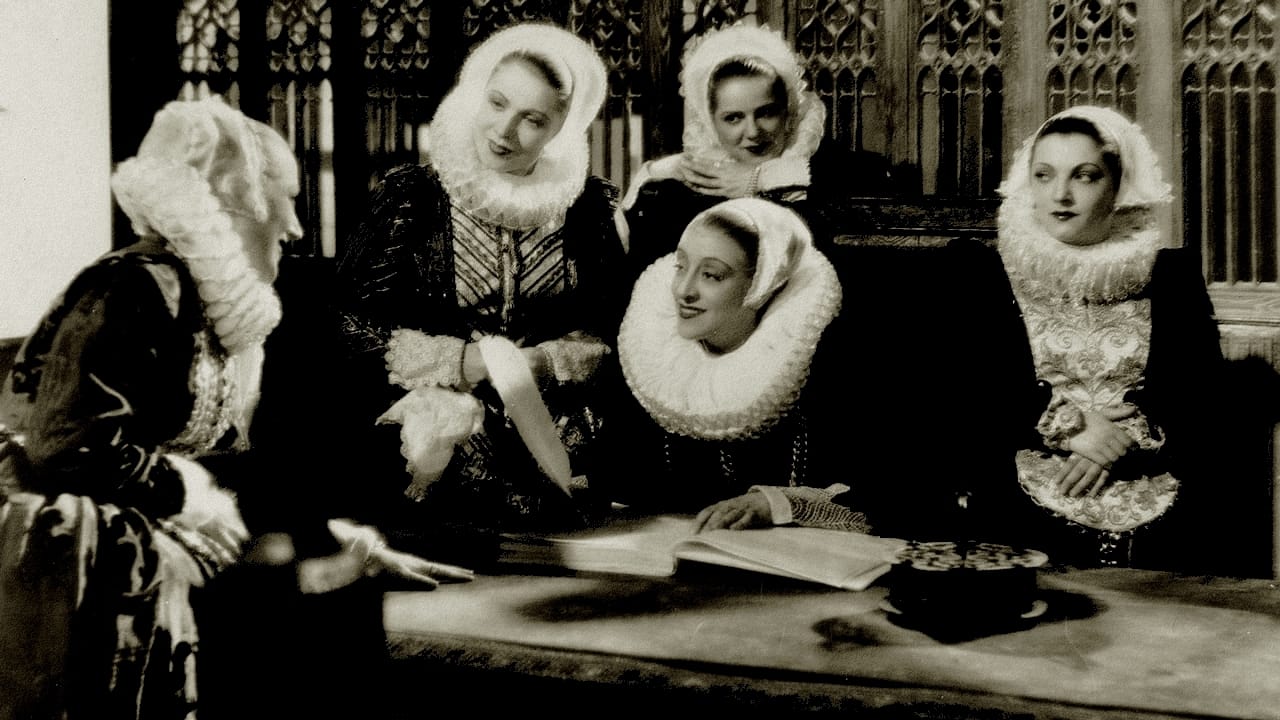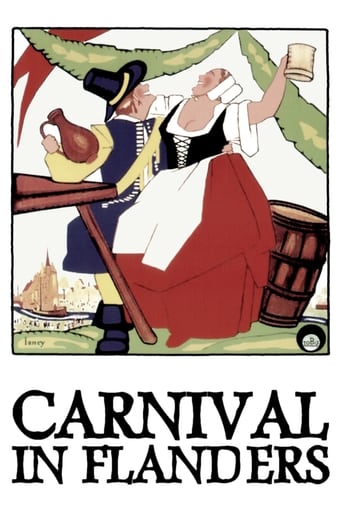

The mayor of a small town in Flanders is thrown into panic when he hears that the Spanish are coming to occupy the town. he decides to pretend to be dead, leaving his wife and the other ladies of the town to cope with the Spanish invasion. The mayoress rallies the ladies, and reassures them that they will be more than a march for the Spaniards. This is an enchanting period comedy, full of lovely details of everyday life, and with many hilarious moments as the ladies of Flanders meet the gentlemen of Spain. the charming flirtation that develops between the mayoress and the leader of the Spanish troops is particularly well done. and there's a delightful scene where one of the gentlemen of Flanders and one of the Spaniards find they have a mutual enthusiasm for needlework. An unusual and very amusing film, pure enjoyment from beginning to end.
... View MoreIt's the Flemish town of Boom in the 17th century and the conquering Spanish army is going to spend the night in the village, preceded by rumors of pillaging, barbarity, rapine, torture, infanticide, and smoking in public.The men of the town are mostly plump burghers and they're terrified. The women, led by the Burgomaster's wife (Rosay), decide that instead of being sullen and acting scared they'll welcome the Spaniards and perhaps mollify them by being accommodating. It works.The first impression a view is likely to get is that this is some sort of animated cartoon full of elaborately (and sometimes definitely weirdly) costumed men and women dashing around excitedly and shouting at one another in French.My impression didn't change all that much, though I waited patiently for something more outrageous than a stout man rolling helplessly down a flight of stairs -- we can get that in Laurel and Hardy -- and a suggestion of cuckolding.The costumes arrest the attention. They're absurd and they're dwelled on too. Rips are sewn up and women worry whether their mourning clothes are still in fashion. The Spanish lieutenant is gay and given to needlepoint or whatever it is -- and he knows all about it. There's a dwarf who loves his two pet monkeys and has to sit on a few volumes of Erasmus ("A pain in the a**") in order to reach the dinner table. There is a priest who extorts money from the dwarf and accepts gifts by passing out indulgences, which are absolution for sins yet to be committed. The priest gets drunk. There is a painter, Jan Breughel the younger, whose work is now valuable but considered imitative -- as one of the Spaniards remarks.All in all, everybody sings and dances and has a good old time except the men of the village, who are mostly in hiding, less those who run the inn and are making scads of dough. Oh, and the viewer's enjoyment is moderate, like that of the only sober person at the party.
... View MoreThis just might e the smartest black comedy (that is a matter of opinion ever made) right up there with Reoir's The Rules of the Game. A female empowerment movie, in a way it reminds one of the movie adaptation of "The Women" with bigger ideas on its mind. Made in 1935, and hailed by all critics as one of the greatest movies ever made, a position it would hold through the fifties, it is a deceptive little tale about the cowardice of men and the bravery of women. The last time the French came through, the little town of Flanders was rampaged ad plundered. News comes again that they are coming through, and the men panic, quiver and run for cover. It is the women who think up the plan to save the city As, I said smile, but very funny with the undercurrent of male an female dynamics underlining every line, phrase and action in this treat. To sum it up, it can be said that the old adage, "Behind every great man is a great woman" a perceptive and illuminating proper edifice.
... View MoreAfter sixty years what is still most striking about this film are the evocations of Flemish Art from the opening scene in a market place crowded with Brueghel figurines to the subsequent groupings of the good burghers of Boom in the style of Rembrandt and the Rubenesque womenfolk. Charles Spaak turned in his usual reliable script and Jacques Feyder filmed it more than competently with his wife, Francoise Rosay in a key role. Louis Jouvet is the class act, not unusually but the plot is a little creaky - it failed as a Musical on Broadway in the early fifties where it played under the title Carnival In Flanders and left in its wake an enduring standard 'Here's That Rainy Day'. Certainly worth another look.
... View More